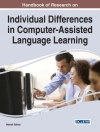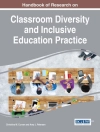Anti-migrant populism is on the rise across Europe, and diversity and multiculturalism are increasingly presented as threats to social cohesion. Yet diversity is also a mundane social reality in urban neighbourhoods. With this in mind, Studying Diversity, Migration and Urban Multiculture explores how we can live together with and in difference. What is needed for conviviality to emerge and what role can research play? This volume demonstrates how collaboration between scholars, civil society and practitioners can help to answer these questions.
Drawing on a range of innovative and participatory methods, each chapter examines conviviality in different cities across the UK. The contributors ask how the research process itself can be made more convivial, and show how power relations between researchers, those researched, and research users can be reconfigured – in the process producing much needed new knowledge and understanding about urban diversity, multiculturalism and conviviality. Examples include embroidery workshops with diverse faith communities, arts work with child language brokers in schools, and life story and walking methods with refugees.
Studying Diversity, Migration and Urban Multiculture is interdisciplinary in scope and includes contributions from sociologists, anthropologists and social psychologists, as well as chapters by practitioners and activists. It provides fresh perspectives on methodological debates in qualitative social research, and will be of interest to scholars, students, practitioners, activists, and policymakers who work on migration, urban diversity, conviviality and conflict, and integration and cohesion.
Praise for Studying Diversity, Migration and Urban Multiculture
’Interesting projects in the field of diversity research. … It is positive that the book is available digitally as Open Access and is therefore accessible to a broader public, including non-scientists.’
Erziehungswissenschaftliche Revue
Innehållsförteckning
1 Convivial tools for research and practice: An introduction
Mette Louise Berg and Magdalena Nowicka
Part I: Conceptualising and performing conviviality
2 Convivial research between normativity and analytical innovation
Magdalena Nowicka
3 Convivial practices in communities of research
Ann Phoenix
Part II: Convivial collaborations
4 The fabric of faith: a reflection on creative arts practice research
Claire Dwyer, Nazneen Ahmed, Katy Beinart
5 Examining conviviality and cultural mediation in arts-based workshops with child language brokers: Narrations of identity and (un)belonging
Sarah Crafter and Humera Iqbal
6 Migration, memory and place: walking as a convivial methodology in participatory research.: A visual essay
Maggie O’Neill, Bea Giaquinto, and Fahira Hasedzic
Part III: Ethics, relationships, and power
7 Failing better at convivially researching spaces of diversity
Ben Gidley
8 Making something out of nothing: On failure and hope in community activism and research
Agata Lisiak and Alicja Kaczmarek
9 Ethnographies of urban encounters in super-diverse contexts: Insights from Shepherd’s Bush, west London
Adele Galipo
Part IV: Reflections on convivial research and practice
10 Strategies to make conviviality the heart of campaigns for the rights of migrants
Don Flynn 11 Breaking down barriers to co-production with civil society Karin Woodley and Charlotte Gilsenan 12. Afterword: Giving multiculture a name
Les Back
Om författaren
Magdalena Nowicka is a sociologist and professor of migration and transnationalism at the Institute of Social Sciences at Humboldt-Universität zu Berlin, and Head of the Integration Department at De ZIM e.V. (German Centre for Integration and Migration Research) in Berlin. Her interests are in qualitative research methods, inter-ethnic relations and dynamics of social inequality.












